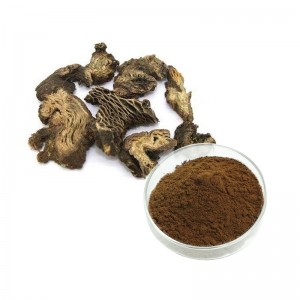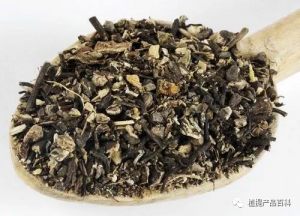Black cohosh, also known as black snake root or rattlesnake root, is native to North America and has a long history of use in the United States. For more than two centuries, Native Americans have found that the roots of black cohosh help relieve menstrual cramps and menopausal symptoms, including hot flusher, anxiety, mood swings and sleep disturbances. Black hemp root is still used for these purposes today.
The main active ingredient of the root is terpene glycoside, and the root contains other bioactive ingredients, including alkaloids, flavonoids and tannic acid. Black cohosh can produce estrogen-like effects and regulate endocrine balance, which can help relieve menopause symptoms such as insomnia, hot flashes, back pain and emotional loss.
At present, the main use of black cohosh extract is to relieve perimenopausal symptoms. The American College of Obstetricians and Gynecologists’ guidelines on the use of herbal remedies for perimenopausal symptoms state that they can be used for up to six months, especially to relieve sleep disturbances, mood disorders and hot flashes.
As with other phytoestrogens, there are concerns about the safety of black cohosh in women with a history or family history of breast cancer. Although more investigation is needed, one histological study so far has shown that black cohosh has no estrogen-stimulating effect on estrogen-receptor positive breast cancer cells, and black cohosh has been found to increase the antitumor effect of tamoxifen.
Black cohosh extract is also used to treat vegetal nervous disorders caused by menopause, and has a good effect on female reproductive problems such as amenorrhea, menopausal symptoms such as weakness, depression, hot flushness, infertility or childbirth. It is also used to treat the following diseases: angina pectoris, hypertension, arthritis, bronchial asthma, snakebite, cholera, convulsions, dyspepsia, gonorrhea, asthma and chronic coughs such as whooping cough, cancer and liver and kidney problems.
Black cohosh has not been found to interact with other drugs except with tamoxifen. The most common side effect found in clinical trials was gastrointestinal discomfort. In high doses, black cohosh can cause dizziness, headache, nausea and vomiting. In addition, pregnant women should not use black cohosh because it can stimulate uterine contractions.
Post time: Dec-09-2022





